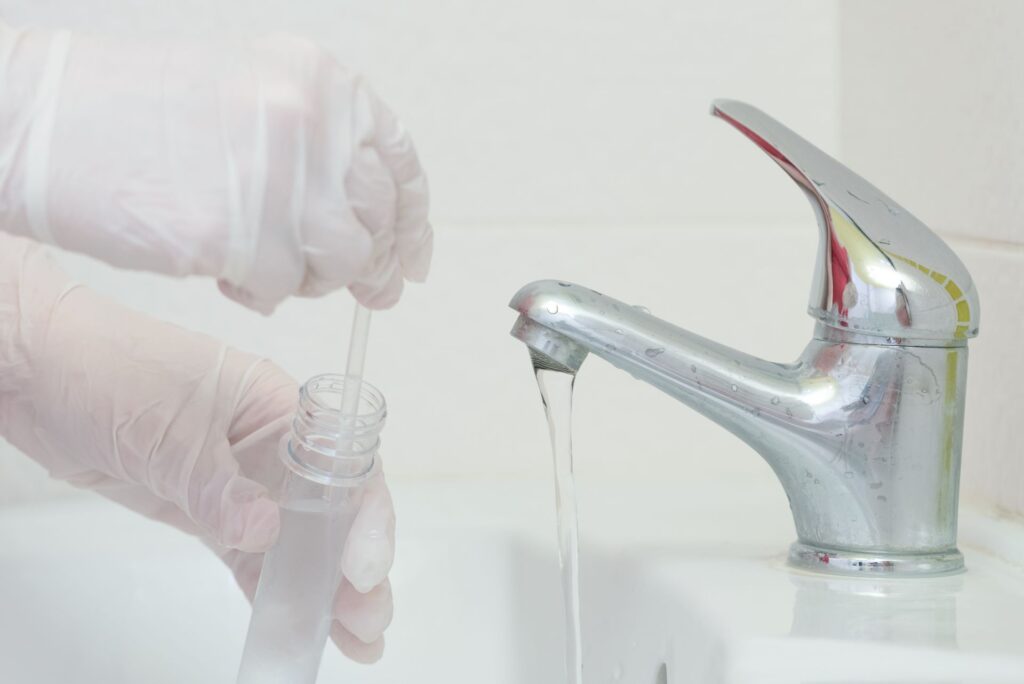Your water quality can have a huge impact on your health. Common contaminants like viruses, bacteria, heavy metals, petroleum products, or pesticides can all cause illnesses or even long-term diseases, but a recent study from North Carolina State University highlighted a relatively new and growing threat: PFAS.
Known as “forever chemicals,” PFAS do not break down easily and are present in many water supplies, both public and private, nationwide. North Carolina ranks the third-highest in the country for PFAS exposure, which could leave residents more vulnerable to medical issues like cancer, cardiovascular disease, liver disease, and miscarriages.
The highest levels were found in the Cape Fear River Valley, including areas like Brunswick County and Wilmington, NC, with up to 155 times the national average.
What Are PFAS?
Perpolyfluoroalkyl and poly-fluoroalkyl substances, or PFAS, are a class of man-made chemicals that help to make products like cookware and bakeware non-stick. They line things like pizza boxes to keep food from sticking and are applied to upholstery and fabrics to make products like furniture and work clothing stain-resistant. PFAS are also heavily used in the plumbing industry to lubricate threaded joints.
PFAS can be dangerous because they don’t easily break down in the environment or the human body. In fact, in the Cape Fear River Valley, residents may have as much as 66 times the government-recommended safe levels of PFAS in their bloodstream. And while PFAS have not been directly linked to cancer, the incidents of cancer and other diseases have risen significantly in the area.
What Are the Top Causes of Pollution in North Carolina’s Water Supply?
Stormwater runoff is the largest source of water pollution in North Carolina. When the state is inundated with heavy rain, especially in metropolitan areas, the rainwater can wash a wide range of pollutants into local waterways, which eventually feed into the groundwater aquifers, rivers, and reservoirs that provide drinking water.
The most common contaminants in North Carolina’s water supply include:
- Sediments like sand and gravel
- Bacteria, viruses, and parasites from animal waste and septic systems
- Petroleum products like fuel, oil, and grease
- Fats, oils, and grease from cooking
- Heavy metals like lead, arsenic, and uranium
- Chemicals like pesticides, PFAS, paints, solvents, detergents, and fertilizers
- Microplastics and other trash and debris
PFAS, in particular, often comes from industrial runoff and pollution, such as the chemical plants found in Fayetteville.
Is NC Water Safe to Drink?
All of the public water systems in North Carolina provide water that’s safe to drink. They’re constantly monitored and treated to keep pollutants below the limits set by the U.S. Environmental Protection Agency and other organizations.
But there are other steps you can take to improve your water quality and protect the health of your family, whether you depend on a municipal water system or a private well.
Install Whole-Home Water Filtration Systems to Protect Your Water Supply
Make sure you have clean, healthy, great-tasting water at all times by installing a whole-home water filter. Depending on the type of filters, whole-home water filtration systems can remove a large portion of pollutants that may affect your health, from lead and arsenic to pesticides, chemicals, and pathogens. More importantly for North Carolina residents, two-stage or reverse osmosis systems can remove up to 94% of PFAS, according to a study by Duke University and North Carolina State University.
When you need whole-home water filtration installation for your home, turn to the expert plumbers at Comfort First Heating & Cooling. With over 50 years of industry experience, we offer exceptional service backed by great reviews. We always offer upfront pricing and financing options on approved credit.
Schedule whole-home water filtration installation by calling Comfort First at 800-279-4822 today.

 3x" class="mb-4 img-fluid h-auto position-relative z-index-9" alt="ribbon image" width="333" height="89">
3x" class="mb-4 img-fluid h-auto position-relative z-index-9" alt="ribbon image" width="333" height="89">














